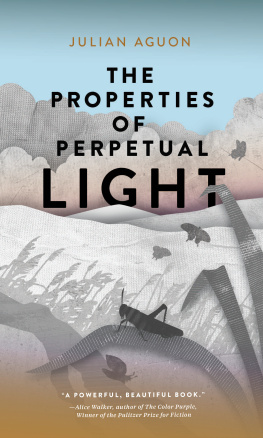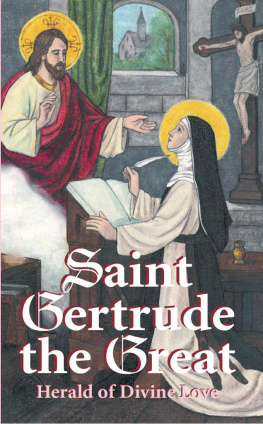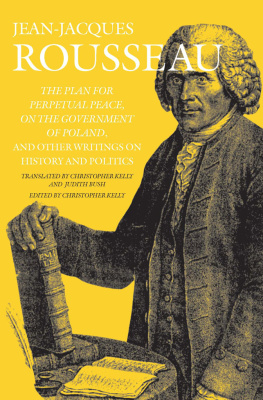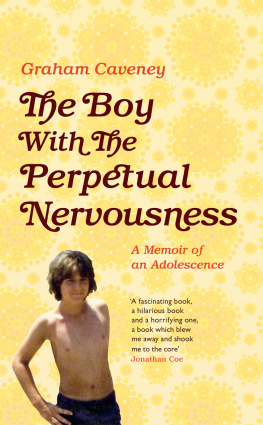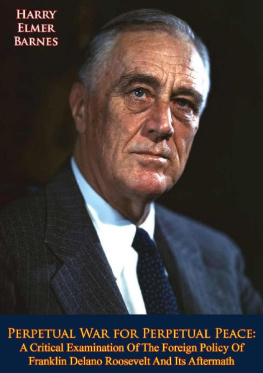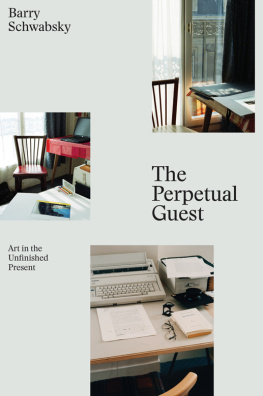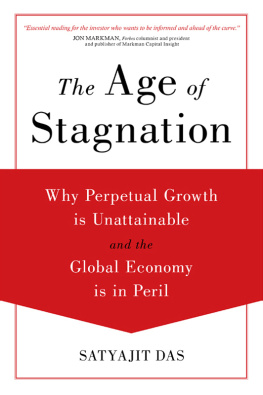Robert A. Divine - Perpetual war for perpetual peace
Here you can read online Robert A. Divine - Perpetual war for perpetual peace full text of the book (entire story) in english for free. Download pdf and epub, get meaning, cover and reviews about this ebook. year: 2000, publisher: Texas A&M University Press, genre: History. Description of the work, (preface) as well as reviews are available. Best literature library LitArk.com created for fans of good reading and offers a wide selection of genres:
Romance novel
Science fiction
Adventure
Detective
Science
History
Home and family
Prose
Art
Politics
Computer
Non-fiction
Religion
Business
Children
Humor
Choose a favorite category and find really read worthwhile books. Enjoy immersion in the world of imagination, feel the emotions of the characters or learn something new for yourself, make an fascinating discovery.

- Book:Perpetual war for perpetual peace
- Author:
- Publisher:Texas A&M University Press
- Genre:
- Year:2000
- Rating:5 / 5
- Favourites:Add to favourites
- Your mark:
- 100
- 1
- 2
- 3
- 4
- 5
Perpetual war for perpetual peace: summary, description and annotation
We offer to read an annotation, description, summary or preface (depends on what the author of the book "Perpetual war for perpetual peace" wrote himself). If you haven't found the necessary information about the book — write in the comments, we will try to find it.
Perpetual war for perpetual peace — read online for free the complete book (whole text) full work
Below is the text of the book, divided by pages. System saving the place of the last page read, allows you to conveniently read the book "Perpetual war for perpetual peace" online for free, without having to search again every time where you left off. Put a bookmark, and you can go to the page where you finished reading at any time.
Font size:
Interval:
Bookmark:
Cover
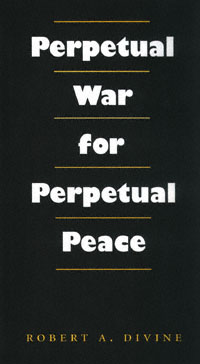
| title | : | Perpetual War for Perpetual Peace Foreign Relations and the Presidency ; No. 5 |
| author | : | Divine, Robert A. |
| publisher | : | Texas A&M University Press |
| isbn10 | asin | : | 0890969531 |
| print isbn13 | : | 9780890969533 |
| ebook isbn13 | : | 9780585376455 |
| language | : | English |
| subject | United States--History, Military--20th century, United States--Foreign relations--20th century--Philosophy, National characteristics, American. | |
| publication date | : | 2000 |
| lcc | : | E745.D58 2000eb |
| ddc | : | 327.73 |
| subject | : | United States--History, Military--20th century, United States--Foreign relations--20th century--Philosophy, National characteristics, American. |
Page 1
for Perpetual Peace
NUMBER FIVE
Foreign Relations and the Presidency
H. W. Brands, General Editor
Page 3
Perpetual War for Perpetual Peace
ROBERT A. DIVINE

Page 4
| Copyright 2000 by Robert A. Divine Manufactured in the United States of America All rights reserved First edition |
| The paper used in this book meets the minimum requirements of the American National Standard for Permanence of Paper for Printed Library Materials, Z39.48-1984. Binding materials have been chosen for durability. |
| In association with The Center for Presidential Studies George Bush School of Government and Public Service |
| Library of Congress Cataloging-in-Publication Data |
| Divine, Robert A. |
| Perpetual war for perpetual peace / Robert A. Divine. 1st ed. p. cm. (Foreign relations and the presidency; no. 5) Includes bibliographical references (p.) and index. ISBN 0-89096-953-1 (alk. paper); 1-58544-105-8 (pbk.) 1. United States History, Military 20th century. 2. United States Foreign relations 20th century Philosophy. 3. National characteristics, American. I. Title. II. Series E745.D58 2000 327.73 dC21 |
| 00-020198 |
Page 5
FOR DARLENE
Page 7
| Acknowledgments | 9 | |
| Introduction | 13 | |
| 1 | Entering Wars | 17 |
| 2 | Fighting Wars | 39 |
| 3 | Ending Wars | 63 |
| Epilogue | 87 | |
| Notes | 101 | |
| Bibliography | 107 | |
| Index | 111 |
Page 9
In the spring of 1998, Prof. H. W. Brands of Texas A&M University asked me if I would give a series of lectures on his campus in the fall as part of the Program in Foreign Relations and the Presidency offered under the auspices of the Center for Presidential Studies. I quickly accepted this gracious request from a former student and decided that America's involvement in the wars of the twentieth century would be an appropriate topic. The reflections that follow, with the exception of the epilogue on Kosovo that was written later, originated as lectures at the George Bush School of Government and Public Service, Texas A&M University, in early November, 1998.
In preparing these lectures, I relied heavily on more than forty years of teaching diplomatic history at the University of Texas. In a sense, they reflect a distillation of the ideas and concepts that I offered to undergraduates who took my course in twentieth-century American diplomatic history. I am deeply indebted to my fellow diplomatic historians whose work and ideas helped shape my own view of the history of American foreign policy. The notes in each essay refer only to the sources for quotations; a full listing of the many scholars on whose work I have relied would be far too long to include.
Finally, I wish to express my gratitude to Bill Brands, who made this venture possible. He proved to be a generous host during my visit to his campus, and he encouraged me to transform the lectures into this book. I view him not only as a former student but also as a colleague and a friend.
Page 11
Perpetual War
for Perpetual Peace
Page 12
Page 13
Americans like to think of themselves as a peace-loving people and the United States as a peaceful nation. Yet just a glance at our history reveals America's long involvement in war from colonial times to the presentfrom our role in British imperial struggles of the eighteenth century down to the recent Cold War with the Soviet Union.
There has not been a single American generation that did not take part in a war. We capped our colonial experience with the French and Indian War, a nine-year struggle to oust the French from North America. We gained our independence from England only after fighting for seven years in the Revolutionary War. In the nineteenth century, the nation was involved in a bloody conflict every few decadesbeginning with the frustrating War of 1812, which ended in a stalemate; the 1846 war with Mexico, which fulfilled America's manifest destiny; the bloody Civil War, which featured American fighting American; and ending with the 1898 war with Spain, a one-sided contest that marked America's emergence as a world power.
In the twentieth century, war has played an equally important role in our history. In 1917 Woodrow Wilson led America into the Great War that had begun in Europe in 1914 in a self-proclaimed attempt to make the world safe for democracy. Its
Page 14
failure to achieve that idealistic goal was made evident by the outbreak of World War II just over twenty years later, culminating in America's entry after the 1941 Japanese attack on Pearl Harbor. Even though the United States emerged from that conflict as by far the most powerful nation on earth, instead of enjoying an era of peace, it quickly plunged into the Cold War. While the fear of nuclear devastation made engaging in hostilities with the Soviet Union unthinkable, America kept getting involved in limited wars designed to halt communist expansion, most notably in Korea, which like the War of 1812 ended in stalemate, and Vietnam, the first war we lost. Finally, the end of the Cold War by 1990 was quickly followed by America's swift if ambiguous victory over Iraq in the Persian Gulf War.
The record speaks for itself: war has been an integral part of our history. Much as we profess the desire for a tranquil and peaceful world, we have resorted to arms again and again, engaging in what Harry Elmer Barnes aptly described as perpetual war for perpetual peace.
I admit that there is some risk in borrowing the title of a book by a controversial scholar who was a leading revisionist on both world wars a historian who believed that the United States engaged in interminable wars, disguised as noble gestures for peace. Barnes's curious combination of broad learning and polemical writing led one observer to label him Half Savanarola and half Diderot. It is interesting to note that Barnes himself credits the phrase perpetual war for perpetual peace to another controversial yet distinguished historian: Charles A. Beard. According to Barnes, Beard used the phrase in their last conversation in 1947 to sum up twentieth-century American foreign policy. Both Beard and Barnes damaged their reputations by accusing Franklin D. Roosevelt of leading American into World War II by deceitful and underhanded means. While I disagree with this charge, I still find that their analysis of American involvement in foreign wars has merit. In refuting isolationism, orthodox historians have too often embraced, in Barnes's words, militarism, the crusading spirit, and war hysteria. Now that
Next pageFont size:
Interval:
Bookmark:
Similar books «Perpetual war for perpetual peace»
Look at similar books to Perpetual war for perpetual peace. We have selected literature similar in name and meaning in the hope of providing readers with more options to find new, interesting, not yet read works.
Discussion, reviews of the book Perpetual war for perpetual peace and just readers' own opinions. Leave your comments, write what you think about the work, its meaning or the main characters. Specify what exactly you liked and what you didn't like, and why you think so.

